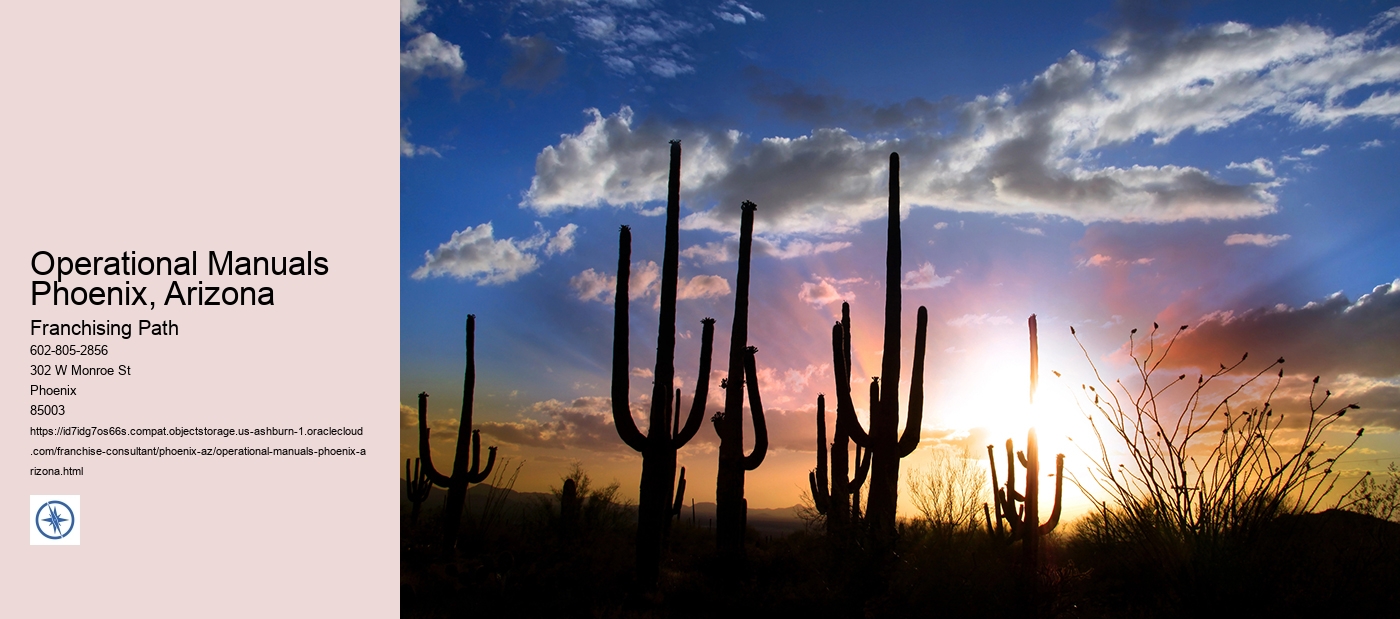Operational manuals are essential tools for businesses and organizations, serving as comprehensive guides that outline the procedures, policies, and standards necessary for smooth operations. In Phoenix, Arizona-an economic hub with a diverse range of industries-these manuals play a critical role in ensuring consistency, efficiency, and compliance within various sectors.
Phoenix is known for its vibrant economy driven by industries such as technology, healthcare, real estate, manufacturing, and tourism. Each of these sectors demands meticulous attention to operational details to maintain high-quality service and product delivery. Operational manuals serve this need by providing employees with clear instructions on how to perform their tasks effectively. For instance, in the healthcare sector where precision can mean life or death, detailed procedural manuals ensure that medical staff follow standardized protocols for patient care.
Moreover, operational manuals in Phoenix cater to regulatory requirements specific to Arizona state laws. Compliance with local regulations is non-negotiable; otherwise, businesses risk facing legal consequences that could be detrimental to their operations. These documents include guidelines on health and safety standards, labor laws, environmental regulations, and other legal requirements pertinent to the region. By adhering strictly to these guidelines outlined in their operational manuals, organizations not only avoid penalties but also contribute positively towards a safer community.
The tech industry in Phoenix has been burgeoning over the past decade. Companies involved in software development or IT services rely heavily on well-structured operational manuals due to the complexity of their workflows. These companies often deal with sensitive data requiring stringent security measures; hence having explicit protocols documented helps mitigate risks associated with data breaches or cyber threats.
Furthermore, operational manuals support employee training programs significantly by acting as reference materials during onboarding processes or skill enhancement initiatives. New hires find it easier acclimating into their roles when they have access to detailed documentation explaining job functions step-by-step along with organizational expectations concerning performance metrics.
In addition to being practical resources internally within an organization's framework; operational manuals also project professionalism externally especially when dealing directly with clients or partners who may require insight into your business processes before entering contractual agreements.
Creating effective operational manuals involves collaboration across different departments ensuring all aspects from administrative duties through technical procedures are thoroughly covered without ambiguity which might lead misinterpretations downline affecting overall productivity levels adversely!
Technological advancements have further revolutionized how these documents are created maintained accessed today! Digital platforms now allow dynamic updating content real-time making sure everyone stays updated latest changes avoiding outdated information circulating among workforce potentially causing disruptions day-to-day activities
To sum up Operational Manuals undoubtedly form backbone any thriving enterprise particularly bustling metropolis like Phoenix Arizona where myriad enterprises coexist each contributing unique flavor tapestry city's economic landscape! Ensuring meticulous compilation upkeep these invaluable resources remains paramount achieving sustained success amidst ever-evolving marketplace dynamics
Training Programs Phoenix, Arizona

